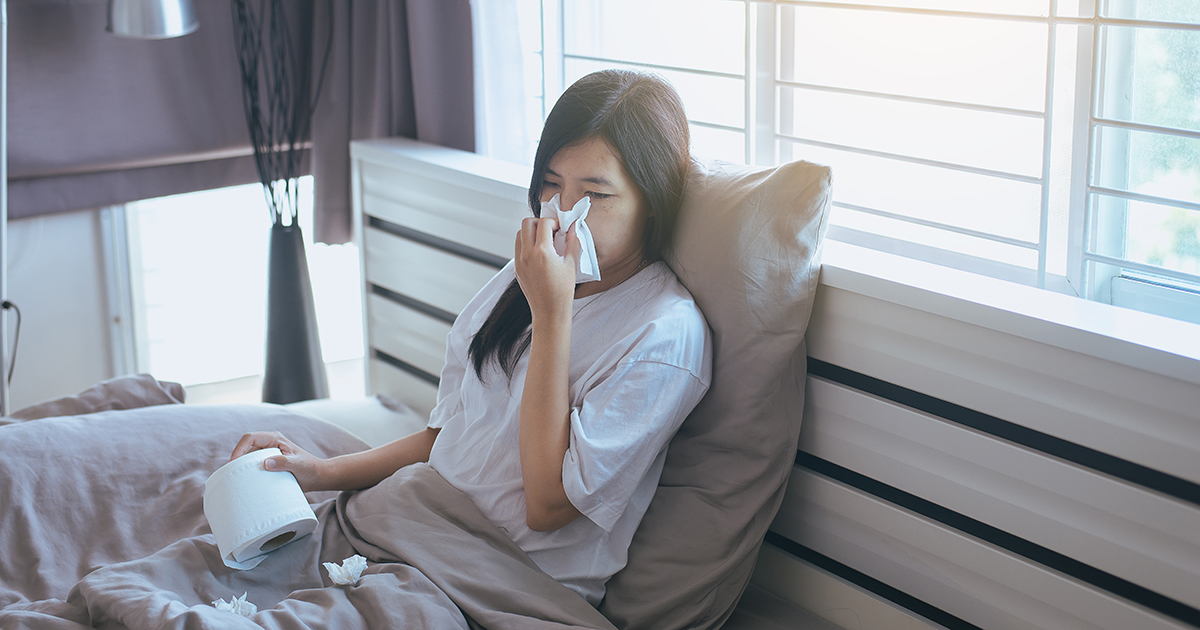
How to keep others safe while you’re sick
Getting sick is no fun for any of us. We want to get well as quickly as possible.
But one thing we often forget is that our treatment and recovery are about more than just us. Anytime we get sick, other people we encounter – directly or indirectly – face a heightened risk of becoming sick, too.
This is particularly true with a highly contagious disease, such as the common cold, influenza, COVID-19 and other viral infections.
Jamie Almasy, director of Infection Prevention and Control at OSF HealthCare, reminds us that the three most basic measures for safety in the home are the same we use in public – wash your hands, watch your distance and wear a mask.
When you are sick, be proactive in your efforts to recover – and keep other people safe, including your family, friends and coworkers.
Avoid spreading your germs
If you suspect you might have a contagious disease, you pose a substantial health and safety risk to the community and you need to isolate yourself as quickly as you can. You do not want to pass it on to anyone else.
Follow these steps to avoid passing an infection to others:
- Isolate yourself. Stay in a separate room. Avoid contact with other people and animals. Use a separate bathroom, if you have the option.
- Eat in an area separate from where other family members are dining.
- Wear a face mask when you’re around other people.
- Thoroughly wash and sanitize your hands frequently.
- If a surface is dirty, wash it first, then sanitize it.
- Clean and disinfect surfaces that are touched often, including doorknobs, light switches, countertops, handles, phones, desktops, keyboards, faucets, sinks and toilets.
- Clean and disinfect any surface with blood or other bodily fluids on them.
- Avoid sharing bedding, towels, dishes, glasses, utensils or anything else. Wash items thoroughly after using.
Extra precautions
Routine cleaning measures aren’t enough to help prevent the spread of illness, Jamie said.
Clean and disinfect surfaces that are touched often, including doorknobs, light switches, countertops, handles, phones, desktops, keyboards, faucets, sinks and toilets. Any dirty surface should be cleaned first, then sanitized. And be particularly careful about cleaning and disinfecting any surface that has blood or other bodily fluids on it.
Need care quickly?
Trash and laundry are both areas that collect contaminated items. Use trash can liners so no one has to touch used tissues, and consider wearing disposable gloves when you handle laundry or trash. Don’t shake out the dirty clothes or linens you’re washing. Wash your hands thoroughly after handling trash or laundry. Wash laundry on the warmest setting.
“If the weather allows it, open your windows to increase ventilation in your home,” Jamie said.
Monitor your symptoms
While you’re isolated, you also need to monitor your own health. If you experience any of the following symptoms, you may need urgent medical attention.
- Difficulty breathing, persistent pain or pressure in the chest or abdomen
- Persistent dizziness, confusion, inability to respond
- Seizures
- Not urinating
- Severe muscle pain
- Severe weakness or unsteadiness
- Fever or cough that improves but then returns or worsens
- Worsening of chronic medical condition
Know your care options
If you experience any of these symptoms, please use one of the following options:
- Visit osfhealthcare.org and use Clare, the free digital assistant in the bottom right corner of the webpage, who can assist you with the next steps any time of the day or night.
- If you’re experiencing severe symptoms, call 9-1-1.